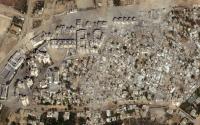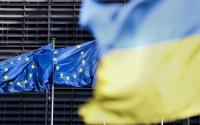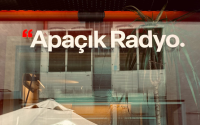LONDON (Reuters) - Deadly blasts in Istanbul overshadowed President Bush's state visit to Britain on Thursday as he prepared to meet Prime Minister Tony Blair for talks on Iraq.
Bush's entourage was speeding toward London's Westminster Abbey for a solemn wreath-laying ceremony as the first pictures of bodies and mangled wreckage on the streets of Istanbul appeared on TV.
The strikes hit British targets, including its consulate and the office of Britain's largest bank, HSBC.
British Foreign Secretary Jack Straw said the blasts bore "all the hallmarks of the international terrorism operations practiced by al Qaeda and associated organizations."
A White House spokesman said the United States was monitoring reports and called the strikes "terrorism."
A U.S. official said Bush and Blair would discuss the blasts and that Bush would comment on them later on Thursday. The two leaders were to hold a news conference at noon (1200 GMT).
Neither side would be immediately drawn on whether they thought the blasts were timed deliberately to strike British interests on a day that Blair appears at Bush's side.
A statement purportedly by a unit of al Qaeda published in a London-based Arabic newspaper on Monday said the organization planned to target "the criminal Bush and his Arab and Western tails -- especially Britain, Italy, Australia and Japan."
The attacks came on the main day of political discussions during the historic first official state visit by an American president in Britain.
After the wreath-laying ceremony, Bush met relatives of seven of the 53 British soldiers killed in Iraq.
"The president wanted to meet with them...to express to them that their loved ones died serving something greater than themselves and didn't die in vain," a U.S. official said.
Bush and Blair were due to discuss differences over trade and Guantanamo detainees, and hammer out details of proposals to speed up the transfer of sovereignty to Iraq.
The previous, first day of Bush's three-day visit was taken up mainly by royal pomp and declarations of unity, with Bush mounting a robust defense of the Iraq war in a keynote speech.
Amid the tightest security ever seen in the British capital, up to 100,000 anti-war protesters planned to take to the streets on Thursday to express anger over a war that divided Britain.
Lindsey German of Stop The War Coalition told Reuters she did not expect the Istanbul attacks to squelch the protests. "I think people will still turn out in force," she said.
"We said before the war that these sorts of attacks would increase as Britain and America were potential targets. The only way to stop this is not by bombing people but by finding a political solution."
The rally is to culminate in Trafalgar Square with the toppling of a giant effigy of Bush in an echo of Saddam Hussein's statue being pulled down in Baghdad.
Officials say Bush and Blair may be nearing an understanding over 10 Britons held at the U.S. military jail in Guantanamo Bay, Cuba, with a possibility that some could be sent back to Britain for trial.
"With respect to the detainees, I can assure you that the president is very sensitive to the views of the prime minister and the British people," said Secretary of State Colin Powell. "We expect to be resolving this in the near future."
Powell also said Bush will soon decide whether to scrap steel tariffs which the World Trade Organization ruled last week were illegal.
(Additional Reporting by Randall Mikkelsen, Caren Bohan, Arshad Mohammed and Paul Majendie)
http://www.reuters.com/printerFriendlyPopup.jhtml?type=topNews&storyID=3860463






